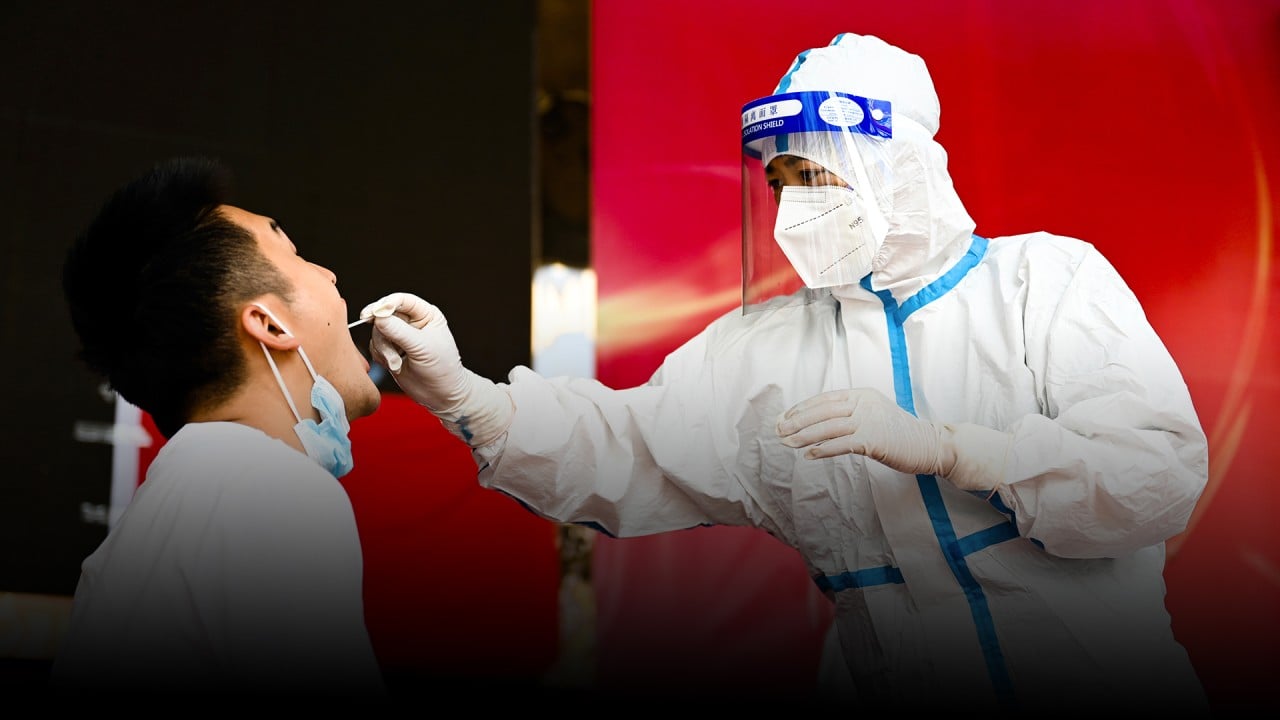
‘Living with Covid-19’ not an option for China, government adviser says
- Head of government’s panel of experts warns of ‘major epidemic, a major public health, social as well as political problem’ if China drops zero-Covid strategy
- Liang Wannian acknowledges ‘fatigue’ and ‘discontent’ but says Chinese people’s altruism is the No 1 reason the country has contained outbreaks
Professor Liang Wannian, a former National Health Commission official and head of a panel of experts advising the government on its coronavirus response, said that even though only a low proportion of infected people had become severely ill or died, China’s 1.4 billion population meant the absolute number would be significant.
“You can imagine how many will get seriously ill or die. It will be a major epidemic, a major public health, social as well as political problem,” Liang told state broadcaster China Central Television on Sunday night. “It must be brought under control and transmission not be allowed to cause so many serious illnesses and deaths.”
Liang admitted that this had bred “fatigue” and “discontent”, but said that “being discontented does not solve any problem” and China would not follow the path of countries that opted to “lie flat” – a Chinese idiom for giving up.
“We can’t do that from the position of Chinese culture, the governance concept of the Communist Party of China, or science,” Liang said. “Do you think the world doesn’t want to follow China’s example? But to achieve the kind of prevention and control results that China has, it takes a combination of many elements, not just one measure or one strategy, to work.”
He said different countries based their strategies on different priorities, which included freedom and quality of life, and gauges of health care capacity such as numbers of staff and intensive care unit beds.
Liang argued that the “high degree of altruism” of the Chinese people was the No 1 reason the country had contained previous outbreaks, saying they had “automatically” borne the inconvenience of Covid-19 control measures to benefit the wider population.
He said “superiority of the socialist system” enabled governments to synchronise efforts from top to bottom in a way that was “difficult for many countries to achieve”.
China would not fear the emergence of variants such as Omicron, and would treat them like stages of a video game to progress through, Liang said.
“The coronavirus will keep mutating and that’s the norm,” he said. “We mustn’t hold a fantasy that its transmissibility and pathogenicity will be weakened. Instead, we should recognise that the virus is very complicated and will be around for a very long time.”
Vaccines should in theory still help to prevent serious illness and death, but people should be prepared for a lifetime of inoculation to maintain immunity, not believe “three doses will be sufficient”, he said.


